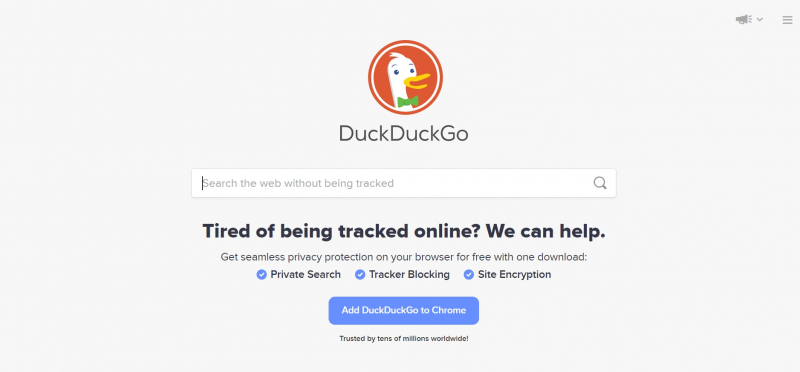Duckduckgo

Contrary to popular belief, DuckDuckGo does not maintain its own search index as Google and Bing do. Instead, it derives its search results from a variety of sources. To put it another way, they don't have their own data and instead rely on external sources (such as Yelp, Bing, Yahoo, and StackOverflow) to respond to user queries. This is a significant restriction in comparison to Google, which uses a set of algorithms to choose the top outcomes from all of the websites that are accessible via the Internet.
DuckDuckGo, which bills itself as "The search engine that doesn't track you," might be worth a try if you have concerns about targeted advertisements or don't want your search data retained. As DuckDuckGo doesn't track, gather, or store any information, you may safely conduct a shoe search without worrying that you'll be inundated with Macy's advertisements afterwards. It's important to note that DuckDuckGo still displays advertisements, just not tailored ones. Also, compared to other search engines, DuckDuckGo features a simple UI and only one search page. As of September 2022, it had an average of 94,758,414 daily direct searches, slowly but surely gaining traction in the search market. However, DuckDuckGo does not save your search history or provide customized search suggestions because it offers private search. When compared to Google and other search engines, DuckDuckGo doesn't provide as many services. You do not have access to Google Maps, the Play Store, or Gmail.











